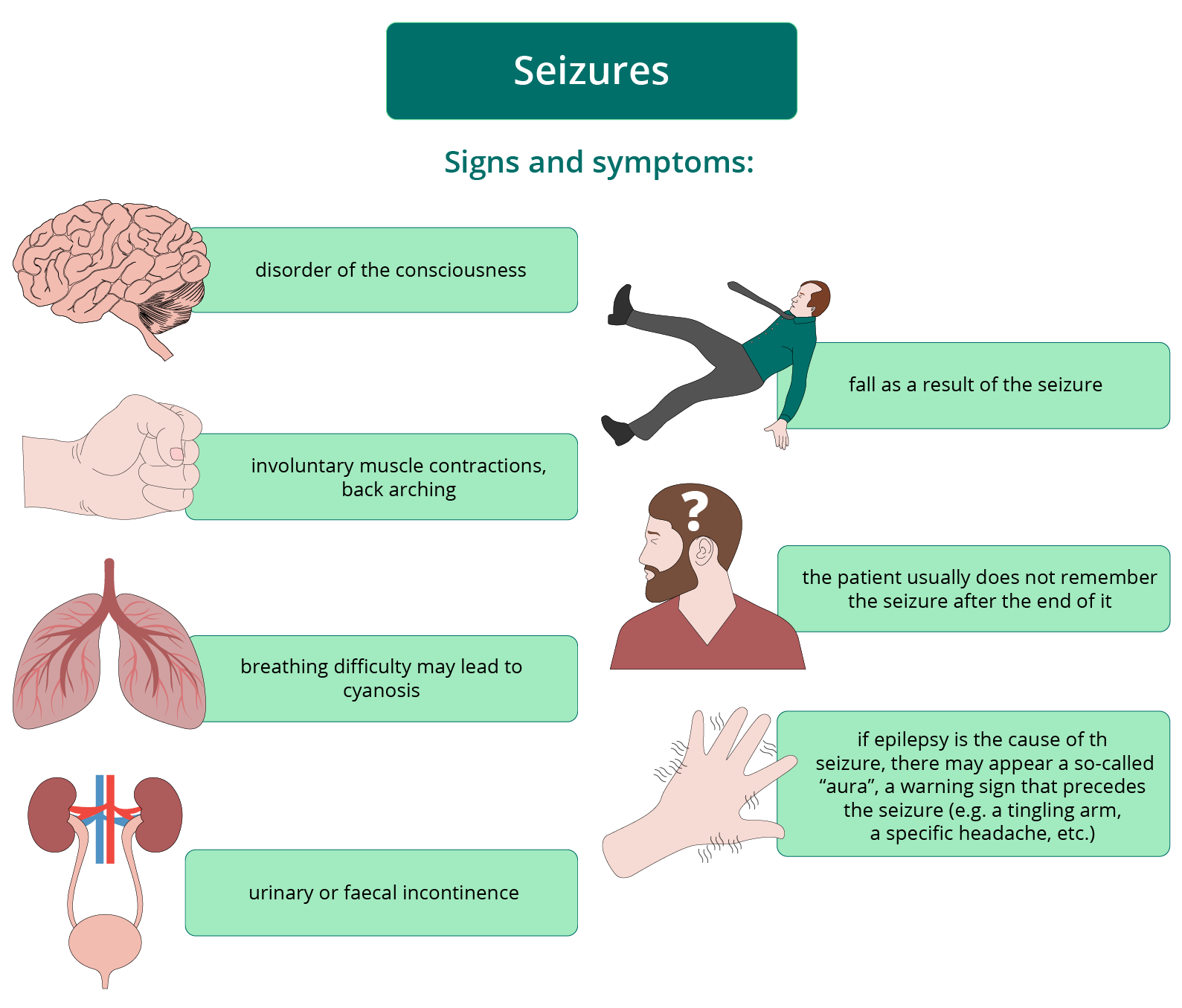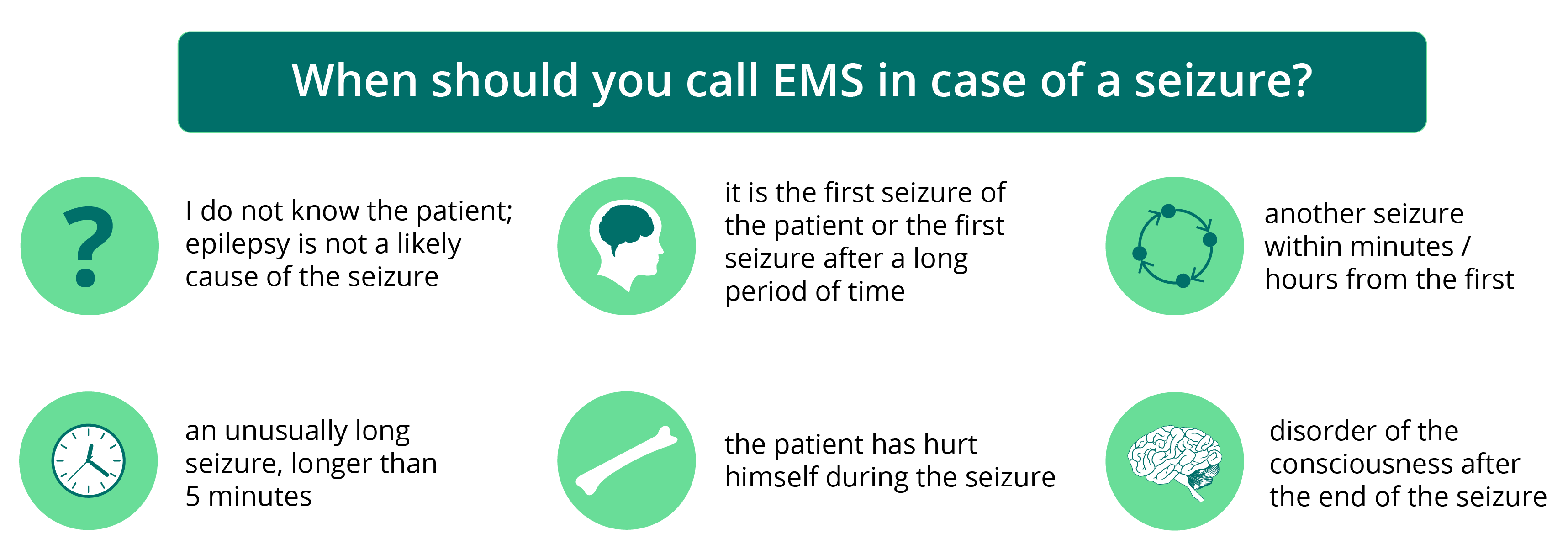Other life-threatening conditions
Seizures
Definition of a seizure (= a convulsion)
Involuntary muscle contractions, very unpleasant for the patient.
- a seizure may be a sign of many different disorders
- some possible causes of seizures include:
- metabolic disorder - hypoglycemia, electrolyte imbalance, psychogenic non-epileptic seizures, hyperventilation
- infectious diseases - meningitis, encephalitis, febrile seizures (in children)
- cardiovascular disorders - hypertensive crisis, arrhythmias, cardiac arrest
- intoxication - e.g. withdrawal symptoms
- epilepsy (the seizure may be triggered by a lack of sleep, physical exertion, strong emotions, a fever, skipping a dose of medication, flashing lights, addictive substances use, etc.)
Signs and symptoms

First Aid
- do not try to restrain the patient or stop the seizure, ensure the patient will not harm himself (remove the objects that could possibly injure the patient from the surrounding)
- do not put anything into the patient’s mouth (the risk of airway obstruction, both the patient and the rescuer may be injured; the patient can breathe through the nose during the seizure)
- observe how long the seizure take and what it looks like to ba able to describe it to the EMS
- when the convulsions stop, check the patient’s level of consciousness according to the SSS ABC algorithm
- if the patient is unresponsive, open the airway and check the breathing
- YES, the patient is breathing normally - check the patient regularly; if he stops breathing, start providing CPR
- NO, the patient is not breathing normally - start providing CPR
- if necessary, call EMS and describe the duration and the character of the seizure
When should you call EMS in case of a seizure?
- calling the EMS is always up to the rescuer and depends on the situation

Take home message:
- A seizure can have many different causes; it is impossible to say what caused it at the moment - consider calling EMS.
- Do not attempt to restrain the patient or stop the seizure, but make sure he/she is safe.
- If the patient becomes unresponsive after the end of the seizure, use the SSS ABC approach to evaluate the condition.